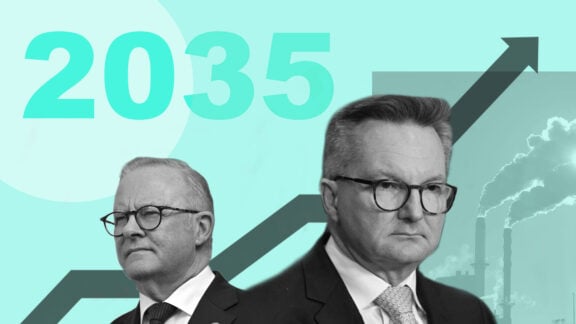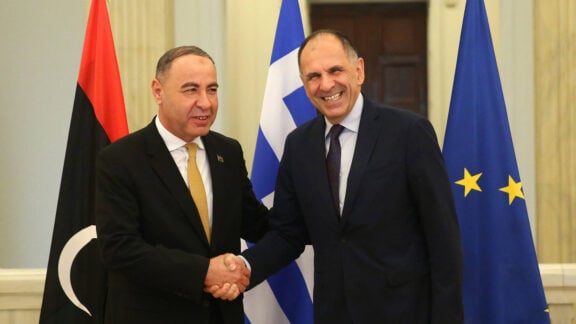“Evviva la libertà.” The message appeared on my screen, oozing a kind of palpable joy. Hurray for freedom. It was sent by my friend Tiziana, who lives in Rome. We mostly communicate via Facebook. Lately, her posts have been mostly about two things − the Italian referendum and a Pasolini memorial event she was taking part in.
Tiziana is an actress, an acclaimed one. She has a vast experience in theatre, film, television, she has even performed alongside Irene Pappa. Lately, though, she mostly does voiceover work; the crisis that looms over Italy (and the European south in its entirety) has taken a toll on her career options.
For those analysing the outcome of Sunday’s vote in Italy, Tiziana is a victim of populism, persuaded by the appealing but empty rhetoric of comedian Beppe Grillo and the unholy alliance between the backwards-leaning left and the far-right nationalists, who deny the benefits of globalisation, growth, the eurozone.
It is not an Italian phenomenon − it is the same all over the world; when the US people vote for a loud-mouth celebrity, like Donald Trump, for president; when the British decide to leave the European Union; when the Greeks vote against the terms of their lenders, saying that they lead to a distortion of industrial relations and the suppression of the middle class.
Both the Italian and the Greek referendums had something in common. They were both seen as a vote of dissent towards the European Union, despite the fact that in both cases, the mandate was different. In the case of Greece, ‘yes’ to the memorandum meant that the Greek people would accept the fact that the country is a debt colony, having surrendered its sovereignty to the European bureaucracy. When, in 2012, The New York Times started printing reports of what is happening in Greece under the austerity measures, the country was described as the battleground for a waging war between democracy and the markets. Reality has justified this reading of events, and especially when it comes to the newspapers estimates that Europe is seeing an erosion of its social fabric.
All this was clear in Sunday’s referendum outcome. What was officially at stake was the constitutional changes that would allow for the Italian Senate to be under the prime minister’s control, in order to be able to pass through the reforms he wanted to, essentially imposing on Italy more of the European Union austerity policies. Matteo Renzi could not go through with these reforms, as he was facing a hostile Senate. He was not the first country leader in the same situation. Barack Obama had the same experience and he still blames the US Senate − which is controlled by the hard-right Republican majority − for his failure to implement the ‘Change’ he promised in 2008.
Here in Australia, Malcolm Turnbull is forced to go through a long, exhaustive negotiating process with backbenchers in order to gain their support for the bills he wants voted. But that is the nature of democracy − or rather, representative, bicameral democracy: creating the kind of consensus that is beyond parties and niche interests, to pass legislation for the benefit of the broader community.
Renzi tried to surpass this, to neutralise the Senate, thus making one of the pillars of Italian democracy (for all its problems) toothless, irrelevant, redundant. Favouring the eurocentric dogma of austerity-as-a-one-way-street over the country’s institutions, Renzi was met with the punishing vote of a people not very eager to understand why there’s no alternative to the growth doctrine. Once again, a leader too transfixed on the markets proved unable to hear the people. And yet, Italians have always been concerned with the route Europe is taking. Anyone who remembers the first days of the eurozone can recall the time when Italy shifted from the lira to the euro and the outrage of the Italians who saw prices being driven up with no logical explanation, as also happened in Greece and elsewhere.
Ever since that time, European bureaucracy has been trying to appease the people, dismissing concerns and offering words of reassurance. The ‘invisible hand of the market’ would work its magic and bring balance to the system. This did not happen, but don’t expect the European Union missionaries to accept it. Facing people who react to the loss of sovereignty, to the mandatory submission to the demands of a central leadership located in a distant part of Europe, they come back with a dismissive rhetoric that further alienates the people from the centre of decision. On one side, there are those who constantly express their discontent for the way things are evolving, who feel afraid, threatened, pressured, disillusioned. And on the other side, a leadership that suggests ‘the proper’ sentiment. As long as the second side refuses to hear the first, voters will go towards those who are willing to give value to their concerns. Even if they’re lying.
So far, it is the right-wing xenophobes who have been exploiting − as usual − this kind of turmoil. As paradoxical as it may seem, it is not uncommon. Whenever democracy is in crisis, those profiting from it are the enemies of democracy, presenting themselves as its champions.
Anyone concerned with this turn of events − and that should mean anyone who believes in democracy − should stop turning a blind eye to this and do something about it. Not by lecturing and admonition. But by changing the policy that drives people to the extremes. By choosing a side. By choosing democracy over the markets.









